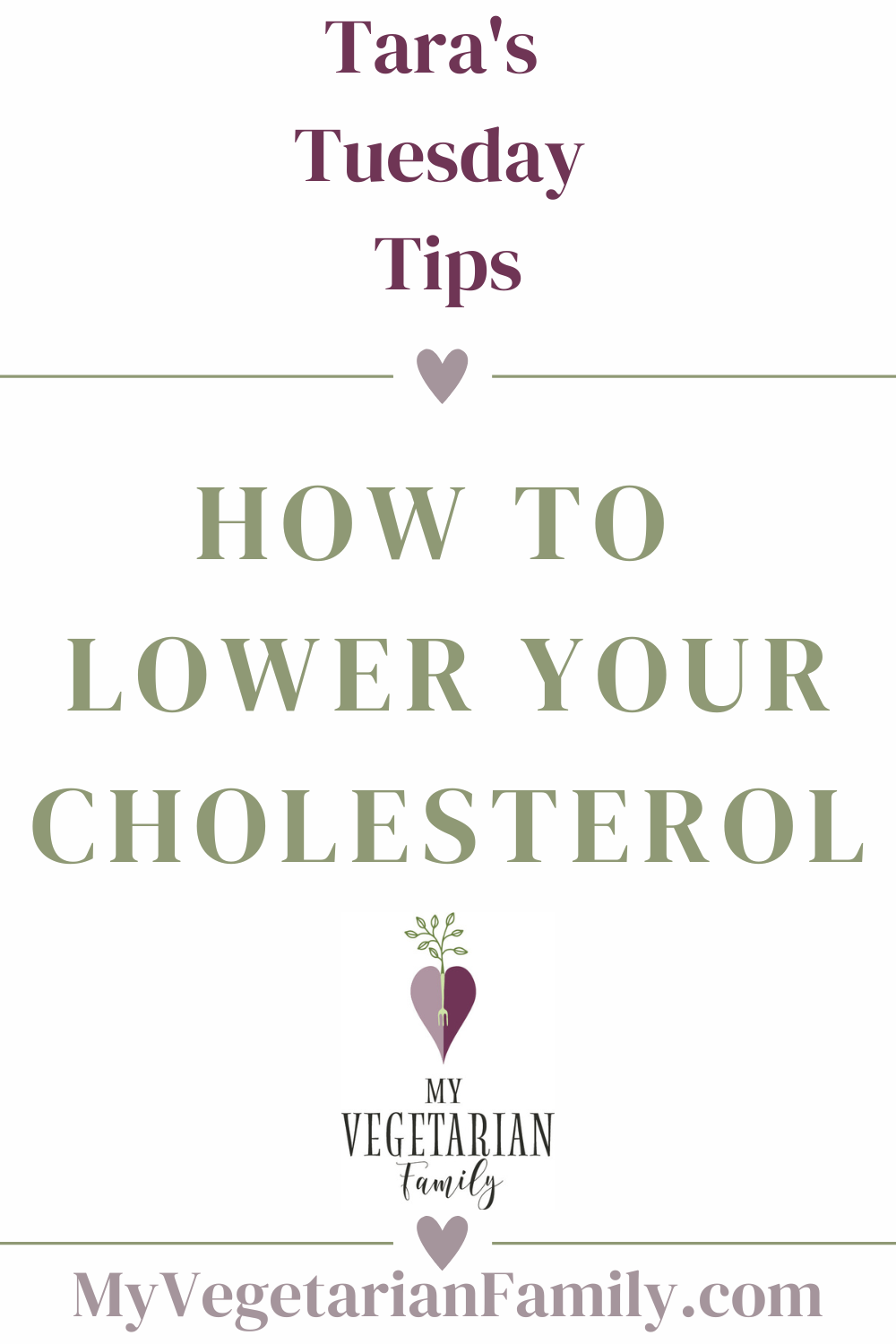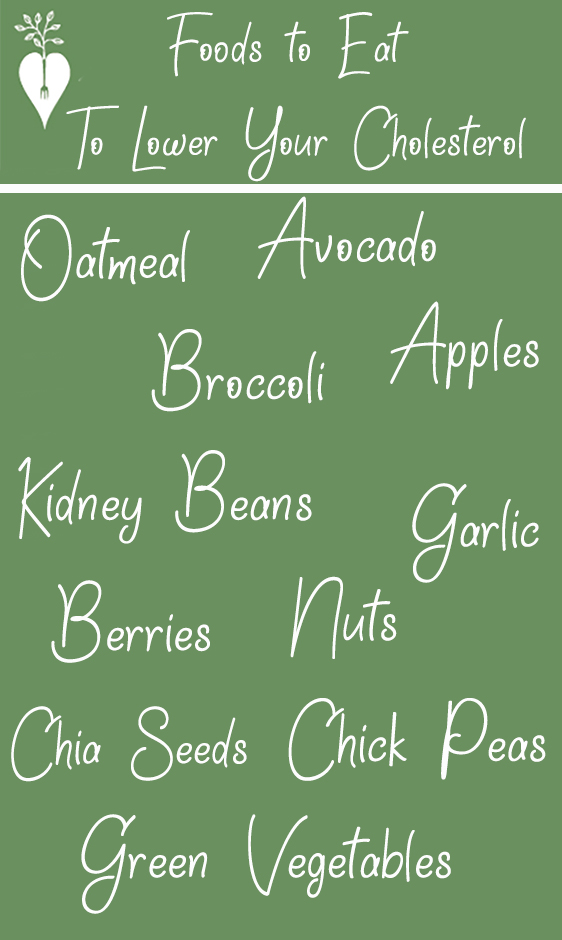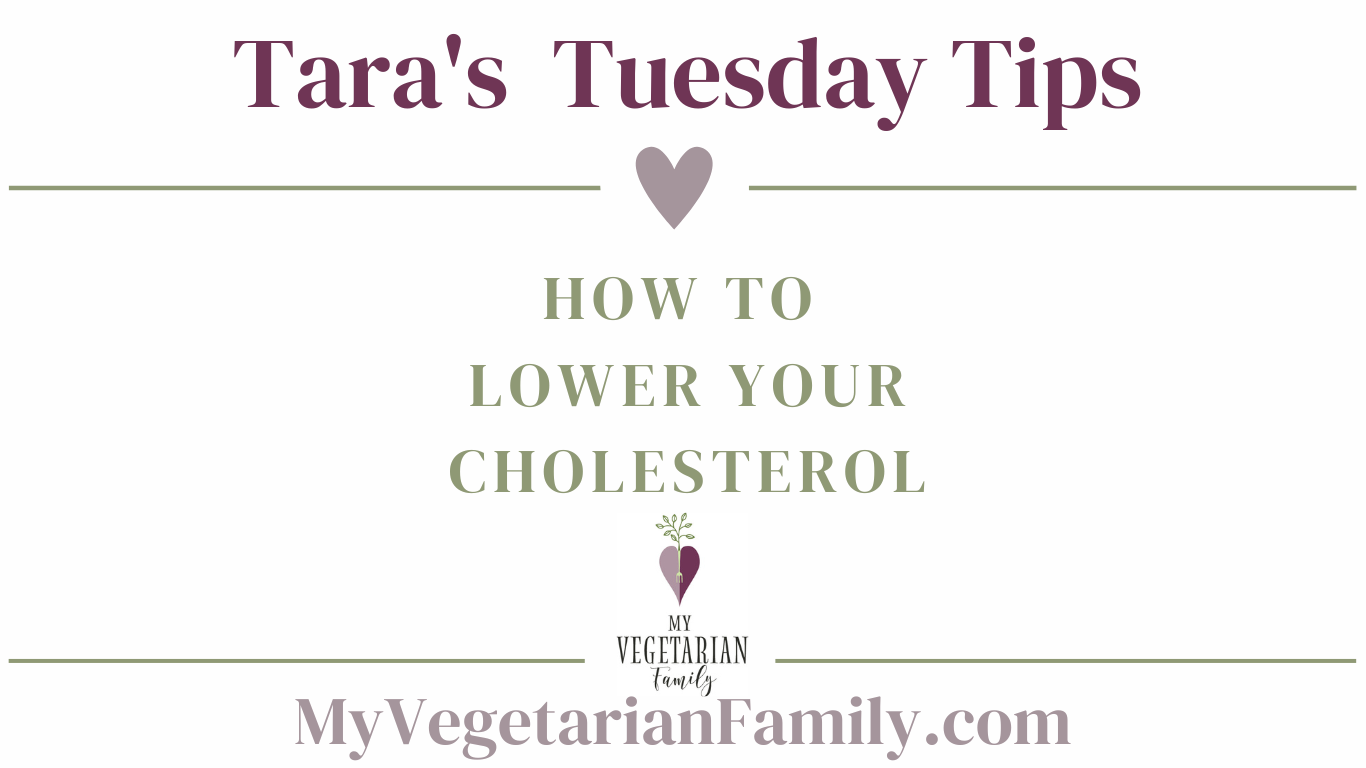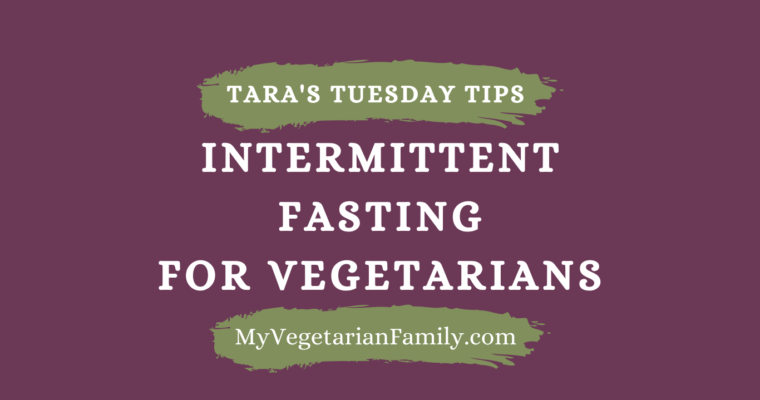Figuring out how to lower your cholesterol or simply keeping your cholesterol in good range can be overwhelming! Follow these easy, helpful tips to get started. Small changes add up and a little knowledge goes a long way. This is a must read!
Tara’s Tuesday Tips:
How to Lower Your Cholesterol
Cholesterol Quick Tips:
- Cholesterol is measured in three main categories: total, LDL, and HDL.
- What can cause high cholesterol? Diet, sedentary lifestyle, genetics, and smoking.
- High cholesterol at any age puts a person at risk for stroke, heart attack, and heart disease.
- Total cholesterol = a normal total cholesterol on your blood test should be less than 200mg/dL.
- LDL = Low Density Lipoprotein, commonly known as “bad cholesterol”. When you have too much LDL in your body, it can cause plaques in your arteries which leads to heart attack and stroke. A normal level on your blood test should be less than 100.
- HDL = High Density Lipoprotein, commonly known as “good cholesterol”. HDL carries cholesterol from other parts of your body back to your liver where it is removed from your body. A normal level on your blood test should be more than 60.
- There are other cholesterol tests including VLDL, non-HDL, triglycerides, Lp(a), and even more specific lipid panels ordered by specialists. These are very useful tests, but must be ordered and interpreted by a knowledgeable provider.
Foods That Affect Cholesterol
Fiber
The two types of fiber are soluble and insoluble. Both are important for your overall health, but soluble fiber is the one that helps to lower blood cholesterol levels (specifically LDL). When you eat foods with soluble fiber, the fiber dissolves in water to form a gel, and then moves slowly through the intestines. Along the way it grabs up fat and cholesterol to be excreted. The fats and cholesterol are then unable to build plaques in your arteries. Foods high in soluble fiber: Oats, black beans, lima beans, avocado, sweet potato, broccoli, apples, pears, kidney beans, sunflower seeds, hazelnuts, figs, barley, and psyllium husk (Metamucil). If you are trying to lower or maintain your cholesterol – make fiber your friend! Not sure where to start? Read these: How To Improve Your Health With Fiber and Easy Ways to Eat More Fiber.
Fat
The relationship between fat and cholesterol is not as complicated as it seems. Eating foods high in omega-3 fatty acids, polyunsaturated fats (flax seeds, walnuts, chia seeds, soybeans), and monounsaturated fats can help lower your LDL holesterol and raise your HDL cholesterol. Eating foods with saturated fats, hydrogenated oils or trans fats can raise your cholesterol (palm oil, ANYTHING that says partially hydrogenated or hydrogenated, vegetable shortening, any fat/oil solid at room temperature). I write more detail about saturated fats in this article: Do Vegetarians Need to Worry About Saturated Fat?.
Monounsaturated Fatty Acids (MUFA’s)
Monounsaturated fatty acids (MUFAs) are healthy fats. Eating MUFA’s instead of saturated fats may help lower your risk of heart disease lower your LDL (bad) cholesterol. MUFA foods include Olive oil, Nuts, Avocados, Nut butter, Olives. Be careful! MUFA’s are still high in calories, so keep that in mind when adding too many of them to your daily routine.
Oils
Oils to avoid when trying to lower cholesterol include palm oil, coconut oil, safflower oil, and shortenings of any kind. There is an abundance of information on this topic. My simple advice here is this: if your cholesterol is high, stick with extra virgin olive oil or avocado oil. Ultimately, try to use less oil overall, and talk to your doctor or schedule a visit with a certified nutritionist to get help with this. These articles might help: Is Oil-Free Right For You?, How To Choose A Cooking Oil.
Nuts
High in protein, fiber, and monounsaturated fats, nuts have been shown in recent studies to have cholesterol-lowering effects. If you are vegetarian or vegan, you should definitely be eating a variety of nuts. Watch this video from Loma Linda University and read this: Are Nuts Good For You Or Not?
Sterols
For so many reasons, sterols are great for us. Regarding your cholesterol, eating plant sterols is very helpful. The cell membranes of plants contain phytosterols (plant sterol and stanol esters). Phytosterols are structurally similar to the body’s cholesterol. When we eat vegetables, the sterols compete with cholesterol for absorption resulting in cholesterol absorption being blocked, and blood cholesterol levels going down.
Dairy
Whole-fat dairy products contain high amounts of saturated fats, and these fats can increase LDL cholesterol levels. If you have high cholesterol or high triglycerides, you might want to consider replacing full fat dairy with healthier alternatives that have less saturated fat or cutting back/cutting out dairy products.
Lifestyle Choices That Affect Cholesterol
Exercise
No controversy here. Study after study has confirmed that increasing moderate physical activity will lower total cholesterol and raise HDL (good). Adding physical activity, even in short intervals several times a day, can help you begin to lose weight and lower cholesterol. The goal per current recommendations is 150 minutes of moderate intensity exercise per week.
Stress
Again, no controversy here. There is compelling evidence that high stress levels increase LDL (bad) cholesterol. Diets high in saturated and trans fats, higher body weight, and lack of exercise all are linked with a high stress lifestyle and are also risk factors for high numbers. That being said, if this is you, add in a small change every day to see big results. What can you do? Yoga, meditation, laughter, change in routine/habits, therapy.
My Vegetarian Family Recipes for Improving Cholesterol
Spinach:
Kale Gnocchi with Spinach Avocado Sauce
Chia Seeds:
Pumpkin Chia Seed Overnight Oats
Oats:
Healthy Eggless Oatmeal Banana Bread
Pumpkin Oat Bars (Vegan + Gluten Free)
Vegan Oat Flour Chocolate Chip Cookies
Instant Pot Pumpkin Steel Cut Oatmeal
Pumpkin Chia Seed Overnight Oats
Chickpeas:
Avocado:
Avocado Tomato Cucumber Pasta Salad
Oil-Free Avocado Hummus Recipe
Avocado Corn Salad (Oil-Free!)
Kale Gnocchi with Spinach Avocado Sauce
Creamy Vegan Avocado Dressing (No Oil!)
The Only Guacamole Recipe You Will Ever Need


⭐Did you love learning how to lower your cholesterol? Love it? Leave a comment + a rating below!
📸I love to see your creations! Follow me on Instagram @myvegetarianfamily and hashtag it #myvegetarianfamily
📩Be sure to subscribe here to my weekly emails for tips + recipes so that you never miss a veggie thing!
This post was originally published in January of 2020 with revisions made in December 2023



10 thoughts on “How to Lower Your Cholesterol”